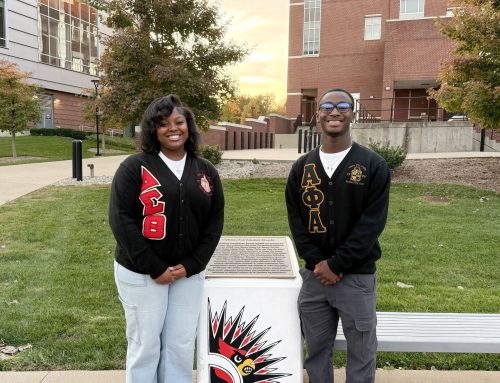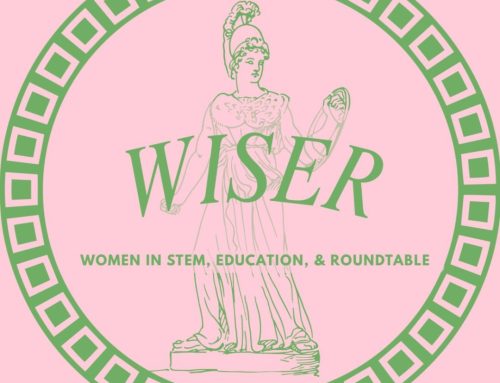By Sydney Ball
Finding a university to begin your career as a professor is no easy task. However, Lyn Radke had her eyes set on the University of Louisville.
During the summer of 2024, Radke applied for a position in the Philosophy Department at U of L. It was an obvious choice for her, having friends both in the city and in the department. Although her first application did not work out, Radke tried again during the summer of 2025. This time, she successfully became a U of L professor.
Although Radke has not yet gotten her bearings with the larger university, her experience in the classroom has been pleasant.
“Students at U of L are really engaged and not afraid to ask questions when they want to know more,” said Radke.
In her own time as a student, Radke studied at Wofford College and Vanderbilt University. She said that she enjoyed her time as an undergraduate at Wofford, crediting the institution for her love of philosophy.
Radke believes that her undergraduate experience differs from U of L students. Radke remembers Wofford as a small, largely conservative community.
“Being situated in a vibrant city, U of L is an institution with students from so many different backgrounds who bring a variety of viewpoints to class discussions,” said Radke.
As a graduate student at Vanderbilt, Radke enjoyed her immediate community. She said that philosophy is not a field of study that often draws in or employs women. However, when she was enrolled, women made up around half of the graduate students in the philosophy department.
Ethics Bowl
Radke is the coach of the Ethics Bowl team at U of L. Ethics Bowl is offered as a course during the fall semesters. Next year, it will grant students three credit hours and the chance to participate in a regional competition. In this course, PHIL 505, students are tasked with answering ethical questions about complex but fascinating dilemmas.
A wide range of ethical topics may be presented, including over tourism, dating technologies and the fairness of Non-Disclosure Agreements.
“The fun of Ethics Bowl is really in the preparation,” she said. “You get to think through questions on a variety of controversial issues that you would otherwise never think about.”
Although the U of L Ethics Bowl team hoped to compete at a regional competition this November, the team was unable to do so due to scheduling conflicts. Despite this, Radke said that the team is laying the groundwork for next year’s competition.
“We are looking for any students who have an interest in ethics—you do not need to be a Philosophy major. In fact, if you are not, that is a plus.” Radke said. “The team is truly interdisciplinary and united by interest, not by a shared academic background.”
Radke believes that the experience of participating in Ethics Bowl will be valuable for students, particularly those going into the fields of law, public policy, business, or medicine. She hopes that students will develop their problem-solving skills using nuance and collaboration.
To build interest in ethics at U of L, Radke and others in the Department of Philosophy are interested in starting an Ethics club. Beginning in the spring, the club will gather biweekly to discuss current issues in ethics. Led by Radke, the club will welcome all majors.
“The idea is to provide a space for students who are curious about ethics and want to talk about it without having to enroll in a full three credit-hour course,” said Radke.
Other courses
In addition to Ethics Bowl, Radke teaches two other courses.
PHIL 323, Medical Ethics, is structured around the stages of life. From birth to death, the course serves as an overview for the ethical implications of medical decisions.
This does not only include the decisions that medical practitioners make, but also patients. At the center of this course is the understanding that everyone will have to face the medical system throughout their lives.
PHIL 308 is Freedom, Equality, Justice and Community. In this course, students are asked to think critically about the lessons they have been taught by society.
Although we have ideals and institutions that govern our behaviors and thinking, they are not always based on laws of nature.
“It’s unclear where their authority comes from or what makes them just,” said Radke. What makes laws binding? Why should we have institutions like private property? These and other questions are (investigated).”
Looking forward to her future at U of L, Radke said that her heart is with her students. She hopes to continue teaching at U of L and doing research. Her areas of interest are medical ethics and the philosophy of relationships.
As a professor, it is Radke’s goal to get more students interested in her area of expertise. She believes that no matter what field a student plans to enter, ethics and philosophy will be intertwined in their work.
Photo by Sydney Ball / The Louisville Cardinal






